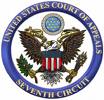Seventh Circuit Criminal Case of the Week: What Can Be Inferred From a Lie?
When a person is caught in a lie, we normally assume that he is covering something up. But, if a defendant in a criminal case lies on the witness stand, is it fair to assume that he actually did what he was accused of doing? Such was the question in United States v. Edwards (No. 08-1124).
Edwards was arrested after making arrangments to sell crack to a government informant. The intended sale did not actually take place, but that is no barrier to conviction for drug trafficking. And, once convicted, a drug dealer becomes responsible under the federal sentencing guidelines for the entire quantity of drugs he has ever sold that counts as “relevant conduct.” (For an earlier post on the pitfalls of relevant conduct, see here.) In order to establish the amount that Edwards sold, the sentencing judge relied on, among other things, $765 in cash that Edwards was carrying at the time of his arrest. Edwards tried to explain away the cash with an unsubstantiated and seemingly implausible story about selling his minivan, but the judge was not convinced. If the minivan story was fabricated, then Edwards must have earned the money from selling crack, right? The sentencing judge concluded as much, and increased Edwards’ drug quantity accordingly.
On appeal, however, the Seventh Circuit held that the judge moved to this conclusion too quickly.



 Since separate state and federal prosecutions are permissible for the same criminal act, federal law appropriately permits district judges to impose federal sentences so that they run concurrently with states sentences; that way, defendants can be protected from what would otherwise amount to double punishment for the same crime. But what if federal prosecution is delayed, and the state sentence has already been served by the time sentencing occurs in federal court? The federal sentence cannot be made concurrent in those circumstances. Is it permissible then for the district judge to reduce the federal sentence length in light of the missed opportunity for a concurrent sentence?
Since separate state and federal prosecutions are permissible for the same criminal act, federal law appropriately permits district judges to impose federal sentences so that they run concurrently with states sentences; that way, defendants can be protected from what would otherwise amount to double punishment for the same crime. But what if federal prosecution is delayed, and the state sentence has already been served by the time sentencing occurs in federal court? The federal sentence cannot be made concurrent in those circumstances. Is it permissible then for the district judge to reduce the federal sentence length in light of the missed opportunity for a concurrent sentence?